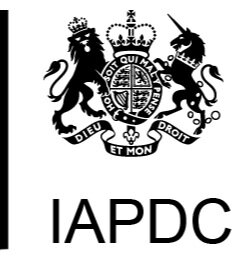Policing
In 2022/23, 23 people died in or following police custody, an increase of 12 compared to 2021/22. There were 52 apparent suicides, a decrease of five compared to the previous year.
A Room With a View, HMP Bullingdon, Berwick Silver Award for Drawing, Koestler Arts
Preventing deaths at point of, during and after police custody
In December 2022, the IAPDC published a report on preventing deaths at the point of arrest, during and after police custody. The report finds that many police forces have forged effective partnerships with allied health and justice service to play to professional strengths, reduce inappropriate use of police time, and prevent deaths in custody.
However, practice is not uniform across England and Wales, with limited evidence that forces are sharing findings after a death, involving bereaved families in driving change, or working with healthcare partners to provide effective support for vulnerable individuals following release. The IAPDC makes 25 recommendations in its report to ensure greater collaboration across agencies to support people experiencing a mental health crisis, improve support for vulnerable individuals post release, and improve the sharing and embedding of learning.
First letter from Kit Malthouse MP and Juliet Lyon CBE to PCCs (February 2021)
Second letter from Kit Malthouse MP and Juliet Lyon CBE to PCCs (November 2021)
Alternatives to the use of restraint
The Government, and the Ministerial Board on Deaths in Custody, in their response to the Angiolini Review, have been clear that further focus needs to be given to examining potential alternatives to the use of restraint by police officers when faced with situations in the community. In 2018, the IAPDC produced a report which presents potential options as alternatives to physical restriant.
Read the report: Alternatives to the use of restraint (February 2018)
The Angiolini Review
The Rt. Hon Theresa May MP commissioned Dame Elish Angiolini DBE KC to produce a report on deaths and serious incidents in police custody. This report, and the Government response to it, was published in October 2017.
The Government asked the Ministerial Board on Deaths in Custody to take forward further work in two areas: healthcare in police custody and support for families. Following discussions at the Ministerial Board in November 2017, Ministers agreed a work programme for the Ministerial Board which covers the following themes:
Healthcare in police custody – Reduce the risk of a death in police custody occurring
Support for families – If a death in custody occurs, ensure better support for families
Inquests and Legal Aid – If a death in custody occurs, ensure families are supported through the inquest process
Accountability – Ensure organisations are held to account
Investigations – Ensure investigations and inquests are timely and effective
Levers to improve performance – Ensure lessons are learnt and improve accountability
Acute Behavioural Disturbance
Acute Behavioural Disturbance (ABD) is the accepted terminology adopted by the UK Police Forces, the Ambulance Services and the Faculty of Forensic and Legal Medicine. It describes the sudden onset of aggressive and violent behaviour and autonomic dysfunction, typically in the setting of acute on chronic drug abuse or serious mental illness.

